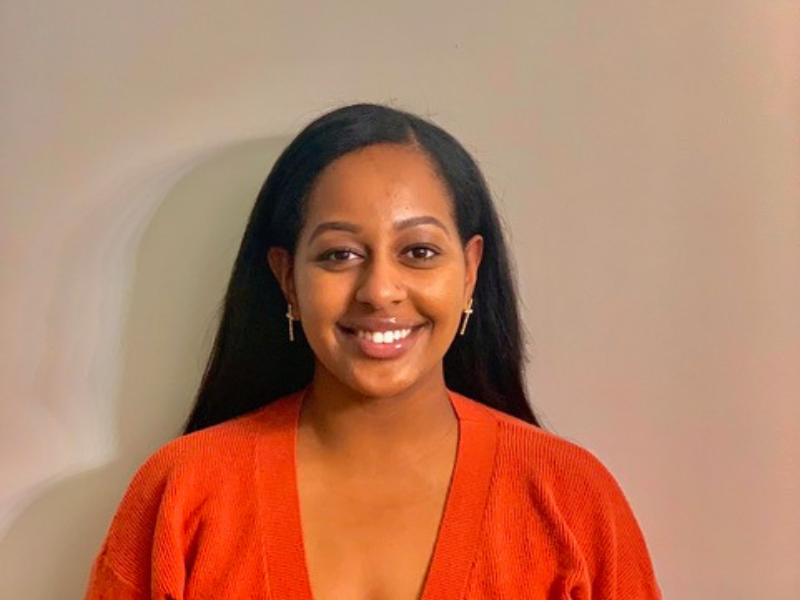Finding my voice in the classroom

Growing up, being introduced to an environment with Black teachers or Black-related courses was never a thing. When I was in elementary school, we would celebrate Black History Month and have a presentation. That made me feel good, but when I reached high school—I went to a private school—I was one out of two Black girls in my grade 12 class. I was in a space where no one else looked like me or understood me, which caused me to struggle. I didn’t have the safe space to address Black issues or learn about the history of Black culture past the one month of February.
That feeling continued as I went into university; I was hoping there would be a safe space to learn the history of Black people in journalism because as journalism becomes more inclusive, the stories of people who identify as a minority would be shared more. Sometimes I felt like I didn’t belong in the program. I knew I had to work ten times harder than any other student because I'm Black and a woman. That feeling alone could be mentally draining to the point where I almost dropped the program. I would avoid pitching stories within the Black community because I didn’t feel like I understood being Black or Black experiences.
However, this changed when our school held an information presentation about courses for the third year. When they mentioned the Reporting on Race course, I knew I had to take it. I heard about the class before and told myself, ‘When I’m able to take this course, I’m going to.’ And that’s what I did. When course intentions came, Reporting on Race was the first class I added to my shopping cart in MyServiceHub.
Flashback to my third year, I remembered entering the class and was initially intimidated. I didn’t feel like I was going to be impactful enough or I didn’t belong because growing up, I didn’t feel like I belonged here. I remember telling my friends that I would drop the course because of my doubts. However, they pushed me because they knew how important it was for me to be there and how much it mattered to me. I decided to give it a shot; let me tell you, it was the best decision ever.
Throughout my experience in the course, it brought me perspective. Not only did I learn how to report in Black communities, but it helped me feel more connected to the Black community. My professor, Eternity Martis, made me feel welcome from the day I walked into her class. She made me feel like my voice matters and I count, which the media doesn’t allow Black people to have, let alone Black women. Sometimes, we were allowed to share our thoughts and feelings on issues. I never did that in my other classes, but I would always share every week with this class. There was never a moment where I didn’t express my feelings.
We also had the opportunity to read Martis’ book, They Said This Would Be Fun, as one of the course's assigned readings. I felt connected to the book because I’ve gone through similar experiences like she had when she was in school and growing up. I’ve felt all my built-up pain and anger from all my years of navigating the world while being a Black woman come out to the point where I cried because I felt understood and heard. I felt like I was yearning to have that feeling.
All the assignments had the main focus on the Black community. Reporting on the positives of Black communities is crucial because nowadays, the media only writes about the bad within them, creating a negative impression of Black people. I liked how I got out of my comfort zone and said what matters to me because it shows that I’m learning and becoming a better journalist.
I’m grateful for the course because I finally found a space where my voice belongs and matters. I finally understood the feeling of expressing myself without having a label as the ‘angry Black woman’ or ‘emotional.’ I felt more connected and realized that I was here for a purpose. I’m also grateful for Eternity Martis; thank you for guiding me and showing me that I belong in an industry where I may not be accepted. You teaching this course has helped me, the future of young Black journalists and other people to feel like they belong no matter what.